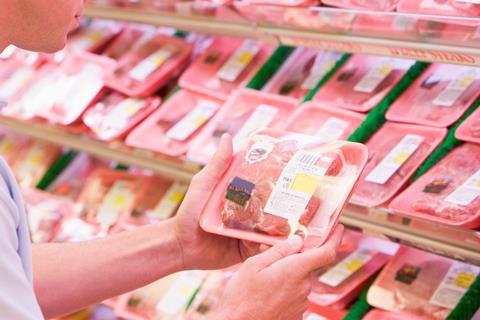National Farmers’ Union (NFU) Scotland has launched Phase Three of its Shelfwatch survey, which looks to quantify the levels of support for Scottish produce in supermarkets across the country.

ShelfWatch is the largest ever survey of food being offered on Scottish supermarket shelves, according to NFU Scotland. As part of the third phase of the programme, an independent firm will visit a number of retailers including Tesco, Asda, Morrisons, Sainsbury’s, Co-op, Marks and Spencer, Lidl and Aldi.
Over the current year, ShelfWatch aims to identify those retailers who are giving “outstanding support” to local food production in Scotland and those who must do better. The survey’s goal is to drive a marked improvement in the availability of Scottish produce in Scottish stores, allowing consumers to fully support Scottish farmers and crofters.
NFU Scotland started the ShelfWatch survey in January of this year, with the first set of results reported at NFU Scotland’s annual conference in Glasgow in February. The second survey was undertaken in late May and the results published on the eve of the Royal Highland Show in June.
“We have found that there are significant amounts of Scottish produce which are available but not labelled as such.”
The results from Phase Three will be reported next month. In total, four ShelfWatch studies will be carried out this year. All retailers involved in the latest survey were notified 24 hours in advance of the study commencing.
Since the start of ShelfWatch, NFU Scotland has met with all the major retailers, and further meetings are planned.
NFU Scotland head of policy Gemma Cooper said: “Previous results have shown a mixed picture of support across the retailers. There are significant differences across our sectors in terms of level of support for Scottish [produce], and this is something we are keen to understand more about and see improvement.
“There is also further conversation to be had about labelling of produce. We have found that there are significant amounts of Scottish produce which are available but not labelled as such. This could be attributed to supply chain challenges such as lack of processing capacity in Scotland.
“We are shortly going to launch our new supply chain strategy which will give a focus to our supply chain work in the coming months and years. Whilst ShelfWatch will continue to be an important source of data for our supply chain conversations, it does not sit in isolation. We will set out our renewed focus on profitability for our primary producers, underpinning commitments for businesses, and long-term sustainability.”












